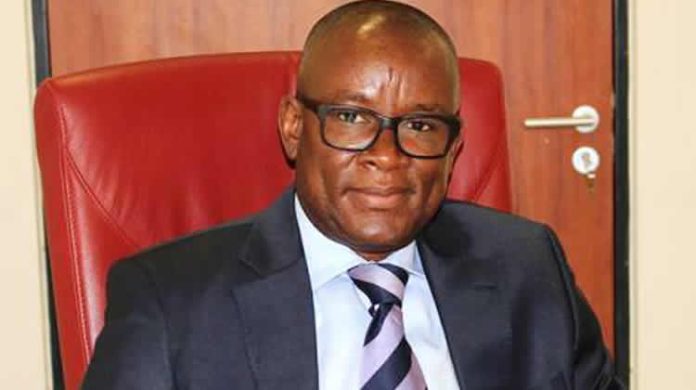The Federal Government has reiterated its commitment to tackling smuggling activities that threaten local industries, as the Minister of State for Industry at the Federal Ministry of Industry, Trade, and Investment, Senator John Owan Enoh, vowed to crack down on smugglers bringing contraband goods into the country through porous borders.
Speaking at the Ministerial Briefing Series in Abuja on Tuesday, Enoh acknowledged the concerns raised by manufacturers and stakeholders over the negative impact of smuggling, as well as other challenges such as power supply and high tariffs.
The minister described smuggling as a major threat to Nigeria’s economy, stating that the government is making concerted efforts to address the issue.
Enoh also touched on Nigeria’s approach to alternative energy sources and sustainable industrial growth.
“On the matter of dirty energy, just about two weeks ago, I initiated some beginning discussions with the IFC, the International Finance Corporation, on establishing Nigeria’s carbon markets for utilization and storage, which is likely to unlock sustainable financing for industrial growth.
“I perceived that this was very significant and believe that it is a conversation that ought to generate a suitable answer to renewable energy and related matters,” he said.
Illegal trade continues to be a significant issue for both the Nigerian authorities and domestic producers, with the Nigeria Customs Service (NCS) recently disclosing that the Badagry-Seme corridor serves as a crucial route for smuggling activities.
According to Enoh, the government is actively pushing for a national industrial policy to help local producers that suffer unfair competition from illegal goods.
He stated, “There is a common trend that I have noticed, and it has to do with the struggle of our local manufacturers.
“That is unfair competition by those who keep smuggling goods that are produced in countries where the producers themselves benefit from a lot of incentives. Unfair competition by goods that are smuggled most of them substandard.”
To address this issue, he highlighted the creation of the Industrial Revolution World Group, a one-stop task force consisting of officials from customs and other relevant agencies to swiftly tackle industrial challenges.
Enoh reaffirmed the Bola Ahmed Tinubu administration’s commitment to supporting Nigerian manufacturers, referencing the N200 billion intervention fund, which includes:
N50 billion allocated as grants for nano businesses, N75 billion for Small and Medium Enterprises (SMEs), N75 billion for large-scale manufacturers
The intervention, he noted, is being managed by the Bank of Industry (BOI).
The minister also spoke about the government’s ongoing efforts to ensure manufacturers access gas at competitive prices, which could significantly reduce production costs.
“I think that this is likely going to be the game changer—that our manufacturers and our industrialists are also able to purchase gas the same way that it’s done in mostly some other sectors of our economy,” Enoh said.
“And I think that when this happens, a lot of the matters about cost are going to be brought down.”
The minister acknowledged the recent withdrawal of a 4 per cent customs charge, which had posed an additional financial burden on businesses.
“Finally, of course, we are aware that as of last week, a certain 4 per cent charge that was begun by the customs and all that was withdrawn, was stopped by this government,” he noted.
With these measures, the government aims to strengthen local industries, improve ease of doing business, and protect manufacturers from the adverse effects of smuggling and high production costs.

